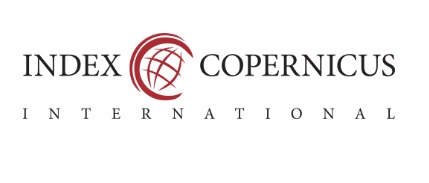Food safety versus food security in a world of famine
Abstract
Aim: The purpose of this article is to discuss the tension that can arise when trying to ensure food safety, which is governed by ever-stricter regulations, and food security, which is a top priority objective of global security and the security of each state. These legal food safety regulations, which can be exaggerated in some cases, are contributing to the already severe famine of food waste to the detriment of the starving population on Earth. The study aims to shed light on how the stricter regulations for food safety and food security have impacted the situation.
Method: Specific characteristics of the European Union were presented in the current research using a case study approach, although they are applicable globally. The selection of the study unit, or Romania as a member of the European Union, and its delimitation are emphasised at the expense of factors relevant to the research methodology.
Findings: According to the results, the term "food waste" does not include scraps left over after consumers have finished eating or debris from improperly storing perishables. Paradoxically, this waste has manifested itself in a heightened focus on their own safety, as evidenced by stricter regulations surrounding food handling. Maximum allowable concentrations for various contaminants are constantly in flux, with some shifts being nothing more than the selfish expression of extreme care and concern by people in developed nations.
Implications/Novel Contribution: As if the moral and financial costs of food waste weren’t enough, doing so also has a detrimental effect on the planet’s finite resources. According to the study’s results, everyone involved in food production, distribution, and consumption should do their part to minimize food loss and waste. Farmers, food manufacturers, and processors can all learn from the study’s results, as can those in the hospitality industry, grocery stores, other retailers, and consumers.
References
Balan, I., Popescu, A., Iancu, T., & Popescu, G. (2017). Food security vs. food safet consumer ethics: Modern challenges. In Conference Proceedings of Current Scientific Problems and EU Integration, Tbilisi, Georgia.
Balan, I. M. (2007). Pork quality management. Timisoara, Romania: Artpress Publishing House.
Chalfoun, F., & Davidaviciene, V. (2018). Internet and aging population. International Journal of Humanities, Arts and Social Sciences, 4(6), 227-234. doi:https://dx.doi.org/10.20469/ijhss.4.10001-6
Ene, C. (2005). The impact of food security in elaboration of the nutritional and food politics (Unpublished doctoral dissertation). University of Bucharest, Bucharest, Romania.
European Commission. (2016). Food use for social innovation by optimising waste prevention strategies. Retrieved from https://bit.ly/2SB6qaV
Food and Agricultural Organization. (2019). The state of food and agriculture 2019: Moving forward on food loss and waste reduction. Retrieved from https://bit.ly/2WleVIl
Food Waste Romania. (2019). Catalog of Romanian organizations involved in waste prevention and capitalization of food surplus. Retrieved from https://bit.ly/2W3ifJ8
Gheorghescu, I. C., & Balan, I. M. (2019). Managing, minimizing and preventing food waste from Romania in the European context. Journal Agricultural Management, 21(3), 58-70.
Gheorghescu, I. C., Velcota, I. I., Martin, A. R., & B ˘ alan, I. M. (2019). Food waste a major problem in the European ˘ Union. Journal Agricultural Management, 21(3), 65-80.
Gherman, E. D., & Balan, I. M. (2019). The impact of food insecurity on the world’s population. Journal Agricultural Management, 21(3), 76-80.
Hanning, I., O’Bryan, C., Crandall, P., & Ricke, S. (2012). Food safety and food security. Nature Education Knowledge, 3(10), 9-20.
Jangulashvili, T., Balan, I. M., Iancu, T., Jangulashvili, L., & Pirvulescu, L. (2017). Research regarding food security in Georgia dynamics of livestock, animal productions and self-sufficiency. Advanced Research in Life Sciences, 1(1), 53-58. doi:https://doi.org/10.1515/arls-2017-0009
Les Amis de la Terre. (2014). The atlas of life: Reality and figures about animals that we consume. Retrieved from https://bit.ly/35z3Ck4
Popescu, A., Iancu, T., Popescu, G., & Balan, I. M. (2017). Romania in the context of the integration in the european union after a decade of transition and challenge: Modern challenges. In Conference Proceedings of Current Scientific Problems And EU Integration, Tbilisi, Georgia.
Revista Nato. (2012). Food security. Retrieved from https://bit.ly/35vBa2h
Shiklomanov, I. A. (2000). Appraisal and assessment of world water resources. Water International, 25(1), 11-32. doi:https://doi.org/10.1080/02508060008686794
Sperber, W. H., & Stier, R. F. (2009). Happy 50th birthday to HACCP: Retrospective and prospective. Food Safety Magazine, 42, 44-46. doi:https://doi.org/10.1016/j.ophtha.2009.09.038
Wikipedia. (2018). Mil-std-105. Retrieved from https://bit.ly/2L0IMk4
Wolek, T., Salasan, C., Fritzsch, J., Davidova, S., Fredriksson, L., Gorton, M., . . . others (2009). Structural change in Europe’s rural regions: Farm livelihoods between subsistence orientation, modernisation and non-farm diversification. Retrieved from https://bit.ly/3dgyYOO
World Health Organisation. (2010). Prevention of foodborne disease: Five keys to safer food. Retrieved from https://bit.ly/2ylvCv6
Zahiu, L., & Dachin, A. (2001). Comparative agri-food policies. Economic Publishing House, Bucharest, Romania, 5(10), 53-54.

This work is licensed under a Creative Commons Attribution-NonCommercial 4.0 International License.












.png)










